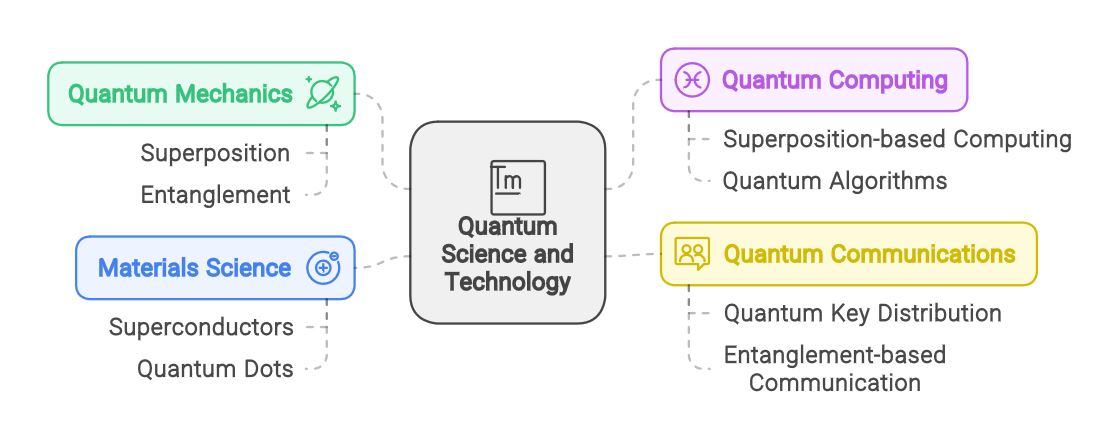Note4Students
From UPSC perspective, the following things are important :
Prelims level: Quantum Theory and related Researches, National Quantum Mission (NQM)
Why in the News?
- The United Nations has designated 2025 as the ‘International Year of Quantum Science and Technology’ to increase public awareness about the significance of quantum science and its applications.
- This initiative, led by Mexico and supported by nearly 60 countries, aims to promote activities at all levels to highlight the importance of quantum science and technology worldwide.

International Year of Quantum S&T
|
What does one mean by Quantum?
- “Quantum” refers to the smallest discrete unit of any physical quantity involved in an interaction according to quantum theory.
- In classical physics, many properties, such as energy and momentum, are thought to be continuous and infinitely divisible.
- However, in quantum mechanics, certain properties, like energy levels and the behaviour of particles, are quantised, meaning they can only exist in specific discrete amounts or levels.
What is Quantum Theory?
|
Development in Quantum Theory So Far
- Planck’s assumption: In 1900, Planck made the assumption that energy was made of individual units or quanta.
- Albert Einstein’s theory: In 1905, Albert Einstein theorized that not just the energy, but the radiation itself was quantized in the same manner.
- Louis de Broglie theory: In 1924, Louis de Broglie proposed that there is no fundamental difference in the makeup and behaviour of energy and matter; on the atomic and subatomic level either may behave as if made of either particles or waves. This theory became known as the principle of wave-particle duality: elementary particles of both energy and matter behave, depending on the conditions, like either particles or waves (wave-particle duality).
- Heisenberg proposed: In 1927, Werner Heisenberg proposed that precise, simultaneous measurement of two complementary values – such as the position and momentum of a subatomic particle – is impossible. Contrary to the principles of classical physics, their simultaneous measurement is inescapably flawed; the more precisely one value is measured, the more flawed will be the measurement of the other value. This theory became known as the uncertainty principle, which prompted Albert Einstein’s famous comment, “God does not play dice.”
What is Entanglement?
- Entanglement was another of several weird properties exhibited by these tiny particles.
- Two particles, having ‘interacted’ with each other at some stage, were found to have got ‘entangled’ in a way that the behaviour of one produced an instantaneous reaction in the other even if the two were no longer connected in any way and were separated by very large distances.
- The entanglement property opened up new technological possibilities first time that it was possible to ‘teleport’ the quantum states of a particle to another location without the particle moving anywhere and without a medium.
What is Superposition?
- It’s a phenomenon where, a particle exists simultaneously at multiple locations, known as superposition.
- The chance of finding the particle at any given place was dictated by probabilistic calculations, and once it was found, or observed, at one location, it ceased to exist at all other places.
What is Quantum Computing?
- Quantum computing is a new and super powerful way of doing computer stuff.
- Instead of using regular computer bits that are either 0 or 1, quantum computers use special bits called qubits that can be both 0 and 1 at the same time, thanks to a thing called “quantum superposition.”
- This allows them to do lots of calculations all at once, making them really fast at solving certain types of problems.
Back2Basics: National Quantum Mission (NQM)
|
PYQ:
| [2022] Which one of the following is the context in which the term “Qubit” is mentioned?
(a) Cloud Services (b) Quantum Computing (c) Visible Light Communication Technologies (d) Wireless Communication Technologies |
Get an IAS/IPS ranker as your 1: 1 personal mentor for UPSC 2024
